The EU Zoo Inquiry was funded and undertaken by the Born Free Foundation in association with ENDCAP, and involved investigations into zoo regulation in 20 EU Member States between 2009 and 2011. It was the most extensive investigation into the implementation and enforcement of the EC Zoos Directive 1999/22 in recent years. Findings revealed a failure by some EU nations to fully transpose the Directive’s requirements and ensure proper implementation; a lack of knowledge, understanding and training of competent authorities, which has led to poor enforcement in all Member States; non-compliance of national legal requirements by the majority of the 200 zoos assessed, including worrying high numbers of unlicensed zoological collections; and hundreds of animals kept in poor to appalling conditions.
Main findings included:
- Eight EU countries had failed to transpose the requirements of the Directive 1999/22/EC into national law.
- Hundreds of zoos were identified as being unlicensed but fully operational. Three countries did not have an operating zoo inspectorate.
- Enforcement was lacking in all EU countries, which was mainly as a result of limited expertise and knowledge of the competent authorities.
- Few zoos across the EU are meeting all their legal requirements.
- 16 / 20 EU countries did not significantly contribute to conservation
- The majority of species kept in zoos were of low conservation significance
- The majority of the zoos did not have an education programme
- The majority of assessed animals were kept in substandard conditions
- Animals were escaping from zoos into the natural environment
- Public health and safety was being put at risk
Findings of the 20 individual investigations are published in the 20 separate Country Reports, whilst the overall findings from 27 Member States are explained in the EU Zoo Inquiry 2011 Report Findings and Recommendations. The project also included an assessment of EU Dolphinaria, which was in collaboration with WDC, Whale and Dolphin Conservation. All reports are downloadable from www.euzooinquiry.eu
- Member State Competent Authorities have a lack of knowledge and expertise to effectively interpret and apply the requirements.
- Zoo inspectors have a lack of knowledge and experience which result in inspections lacking structure, consistency and meaningful outcomes.
- State veterinarians have a lack the knowledge and expertise to effectively assess wild animal well-being; identify poor welfare and address it.
- Zoo operators in many Member States do not know how to provide appropriate care for their animals. Without zoo guidance, zoos are often left to their own devices.
- Zoos are not meeting their responsibilities to the conservation of biodiversity under Article 9 of CBD and its education to the public.
The European Commission welcomed the EU Zoo Inquiry and announced it would contract the development of a code of practice to help improve zoo regulation across the EU.
Moving Forward
“We have been very clear that The EU Zoo Inquiry is the first step towards positive change. We hope to secure the support of Member State Governments, together with that of the European Commission, to ensure enforcement agencies have the means to effectively enforce the law. Many animals in European zoos are suffering needlessly, and without assistance from the European Community the shameful problems we have found are likely to continue.”
Daniel Turner, project manager for the EU Zoo Inquiry.
The EU Zoo Inquiry has demonstrated the need for collaboration between public and private sectors, governments and the European Institutions to ensure that the implementation and enforcement of this, and other relevant EC legislation, is achieved. ENDCAP is committed to the facilitation of more training, the development of educational tools and detailed guidance to improve knowledge and achieve better enforcement, thus ensuring better lives in the short to medium term for the many hundreds of thousands of animals currently in EU zoos, while advocating a longer-term approach to phase out the concept of the traditional urban zoos. The actions of the European Commission to develop a Code of Practice on the regulation of zoos and associated training opportunities, both outcomes of the EU Zoo Inquiry, are welcomed. However, a greater commitment by Member States and the European Association of Zoos and Aquaria is needed to ensure zoos across the EU fulfil their legal obligations concerning conservation, scientific research, public education and animal care.
- An average of only 13% of species kept in European zoos were classified as Globally Threatened and only 5% were classified as European Threatened species
- Only an average of 8% of species kept in European zoos are participating in coordinated captive breeding programmes
- Few zoos have successfully reintroduced animals species into the wild
- 50% of zoos did not appear to actively seek to educate the public
- Animal shows, including parrots riding bicycles, sea lions balancing balls and chimpanzees made to wear clothes are still found in European zoos
- Nine of the 27 Member States (2012) implement minimum standards for the keeping of animals in zoos and that these vary considerably between countries
- Of the 27 EU Member States consulted, 20 have identify the need for further training to facilitate effective enforcement of the requirements of the EC Directive 1999/22
- Identifying the training needs of EU Member State competent authorities (2016) The Born Free Foundation
- Individual reports, revealing the findings of investigations into zoo regulation in 18 European countries: Austria, Belgium, Bulgaria, Cyprus, England, Estonia, France, Greece, Hungary, Ireland, Italy, Latvia, Lithuania, Malta, Poland, Portugal, Romania and Slovenia, were published in 2011 and 2012. Whilst the report on Germany and Czech Republic were published in 2013. All reports are available for download from the EU Zoo Inquiry website
- Overall Findings and Recommendations including an insight into zoo regulation in Spain
- A review of EU Dolphinaria undertaken by the Born Free Foundation and the Whale and Dolphin Conservation



-70bd41066e.jpg)

-139c0f27d1.jpg)
-cca57a949c.jpg)
-4e77f2e5cd.jpg)


-72648ce667.jpg)

-9d01ef7897.jpg)



-5b9cf7e77d.jpg)
-5cb846aa82.jpg)


-81b4180381.jpg)


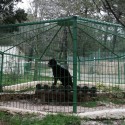
-db13ed9e31.jpg)
-b6af04cda6.jpg)
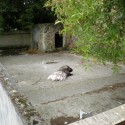
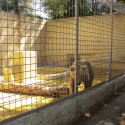

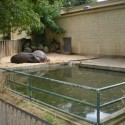

-6bc095bba0.jpg)
-76e0cdcee3.jpg)
-37009a8b04.jpg)

-262f861a6a.jpg)
-a92f04b374.jpg)
-4ae3d02475.jpg)

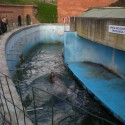
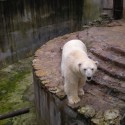
-431ea75cce.jpg)
-e7ff059970.jpg)
-5c16e5e723.jpg)
-408dabc7d8.jpg)
-890dd8ae28.jpg)
-b0b2ac3126.jpg)
-f82946914f.jpg)
-73e366091f.jpg)
-eb8ff66dbc.jpg)
-15bd099acf.jpg)
